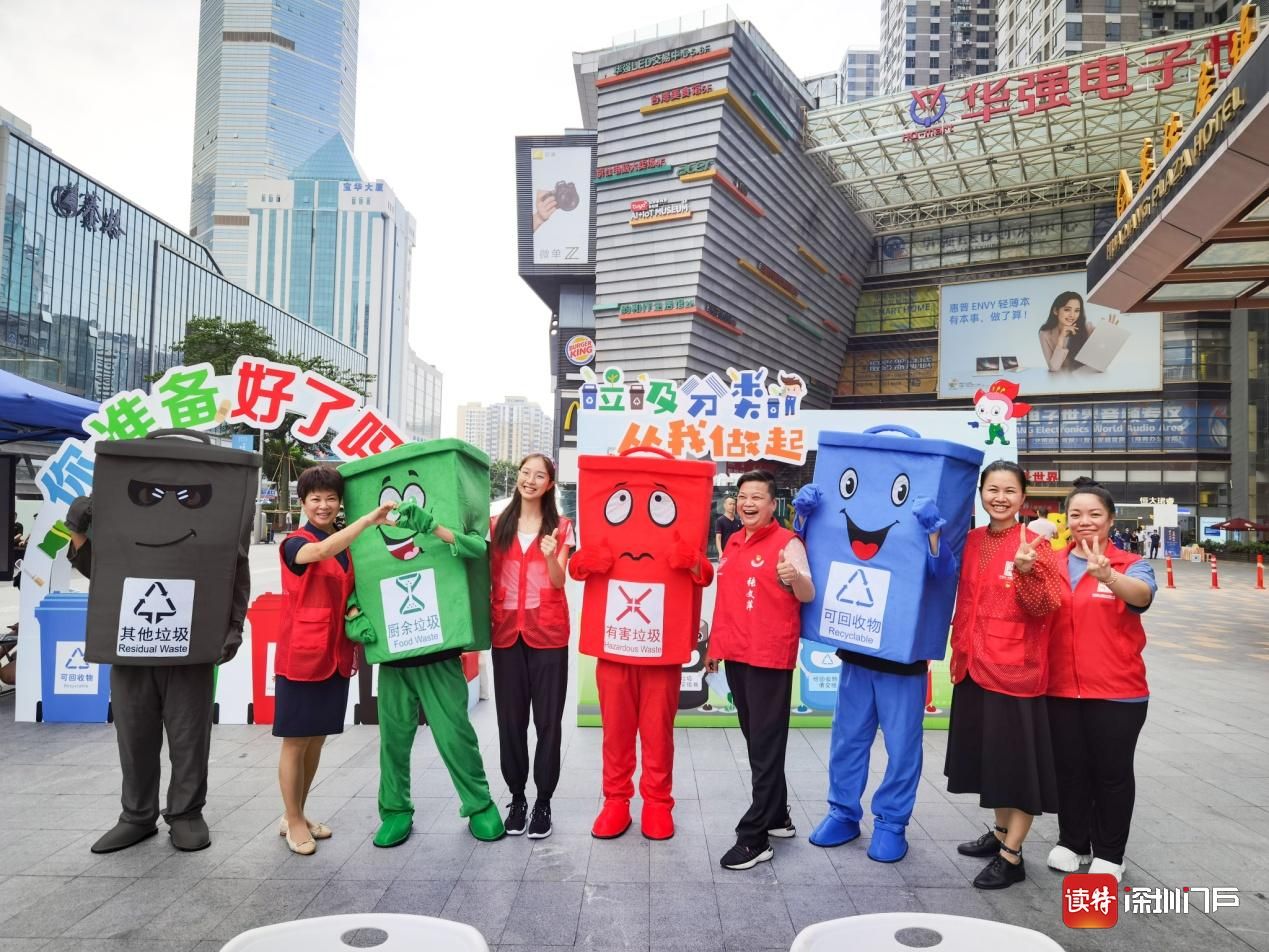Garbage sorting mandatory tomorrow
Writer: Wang Jingli | Editor: Holly Wang | From: Shenzhen Daily | Updated: 2020-08-31

Volunteers pose for a photo at a promotion event on garbage classification event held in Huaqiangbei, Futian District on Thursday. DT News
Resident representatives and those from industries and government departments attended a launching ceremony held Friday to declare their readiness for mandatory garbage classification as Shenzhen will implement mandatory trash sorting rules tomorrow.
Andy Chikirev, an expat in Luohu District, said he is ready for the mandatory rules but observed that to unify the response across the city, the enforcement has to be strict and consistent all the time.
Elliot Maldonado who lives in Longgang District also said that he is ready for the new rules and suggested stronger enforcement.
Many industries in Shenzhen have responded to the city’s move to implement garbage sorting regulation.
Some 20,962 restaurants across the city have been subject to mandatory garbage sorting.
The city’s takeout delivery industry association issued an initiative to call for shops and supermarkets to stop using nondegradable plastic bags and to instead promote the use of cloth bags, paper bags and biodegradable plastics.
In addition, companies in the delivery industry issued a notice to promote recycling of used packages. It is reported that the city’s use of e-receipts for mail services reached 98.9 percent.
Tourism associations said that they will train tour guides to guide tourists in following garbage sorting when visiting the city.
As of now, more than 3,500 residential communities across the city have formed a garbage-sorting model featuring collection of garbage in designated places and garbage sorting supervision at fixed times and locations.
Garbage classification has been applied in 1,690 urban villages, more than 1,600 government units and over 2,500 schools (kindergartens included).
Trash recycling rate is 32.1 percent, according to the Shenzhen Municipal Urban Management and Law Enforcement Bureau.
The success of garbage sorting depends on whole, effective procedures including garbage sorting, garbage transport and garbage disposal, according to Yang Lei, deputy director of the municipal urban management and law enforcement bureau.
At present, the city has built four kitchen garbage treatment plants and 43 small-sized kitchen garbage treatment sites.
The city’s domestic waste incineration capacity reaches 20,000 tons per day, basically achieving the incineration of all other waste after classification, according to authorities.